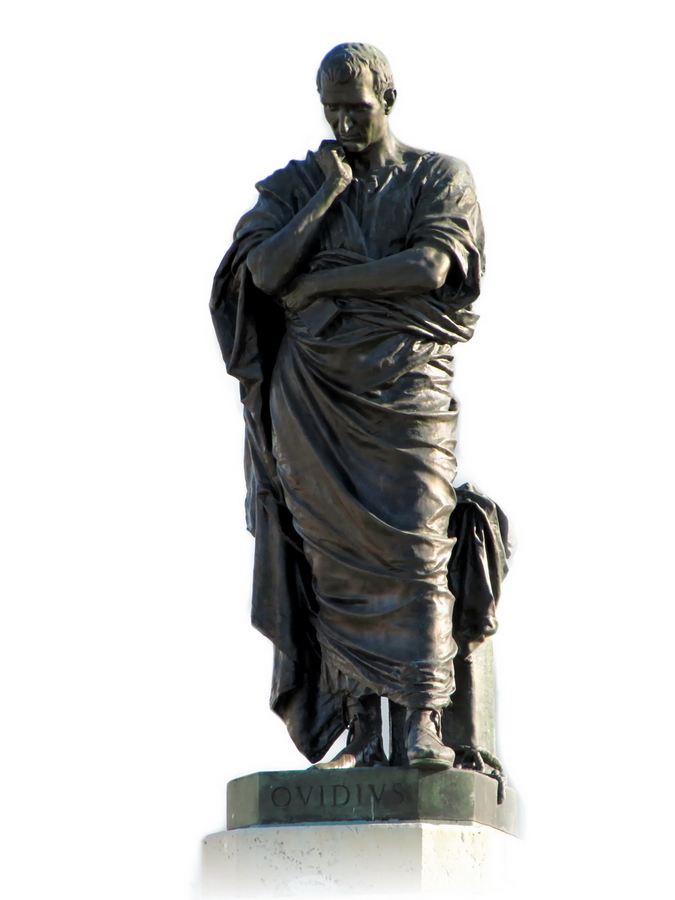
Ovid was born Publius Ovidius Naso on March 20, 43 B.C., a year after the death of Julius Caesar. He was born in Sulmo, to a wealthy family. When Ovid was twelve years old, the battle of Actium put an end to a civil war that had been raging between Anthony and Octavian. Octavian, the victor, became emperor. He was later known as Augustus. Because he lived in a time of calm and prosperity, and because of his family’s wealth, Ovid was able to write in peace. Ovid’s work draws on the great literary traditions of Greek, Hellenistic, and Roman cultures. His writing owes a debt to the works of Homer, Hesiod, Euripides, Theocritus, Callimachus, Virgil, Tibullus, Horace, and Propertius. Some critics view Ovid’s opus as the culmination of ancient poetry.
Ovid is most famous for the Metamorphoses, a single poem of fifteen books, which was probably completed around a.d. 8. By writing the Metamorphoses in dactylic hexameter, the meter of epic, Ovid intentionally invited comparisons with the greatest Roman poet of his age, Virgil, who had written the epic the Aeneid. In form, rhythm, and size, the Metamorphoses falls squarely in the category of epic. In content, however, the Metamorphoses has little in common with such epics as the Aeneid, which are characterized by a single story line and one main protagonist. In fact, Ovid explicitly pokes fun of the epic genre. The Metamorphoses more closely resembles the work of Hesiod and the Alexandrian poets, who favored a collection of independent stories connected by a theme. The Metamorphoses’ roughly 250 stories are linked only by their common theme of metamorphosis.
Before the seas, and this terrestrial ball,
And Heaven's high canopy, that covers all,
One was the face of Nature.
For reasons not totally clear to historians, Ovid was exiled from Rome around 8 A.D. by Emperor Augustus. In his poem Epistulae ex Ponto, he states the reason was "a poem and a mistake." Historians speculate that the poem might have been Amores, and that Ovid was banished for making fun of respectable love and revealing lurid portrayals of contemporary Roman society. Others believe that Ovid was indirectly involved in a conspiracy against Augustus.
Ovid was sent to Tomis, on the Black Sea, in what is now Romania, and his works were banished from Roman libraries. During this time, he wrote the poems Tristia and Epistulae ex Ponto, which reflected his sadness and desire to return to Rome, though he never did. Ovid died in Tomis in 17 A.D. His works are known to have influenced Chaucer, Shakespeare, Goethe and Ezra Pound.
![]()











